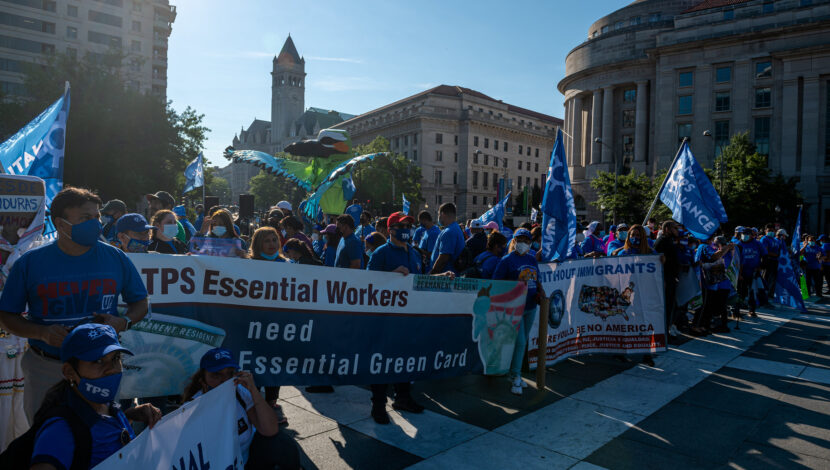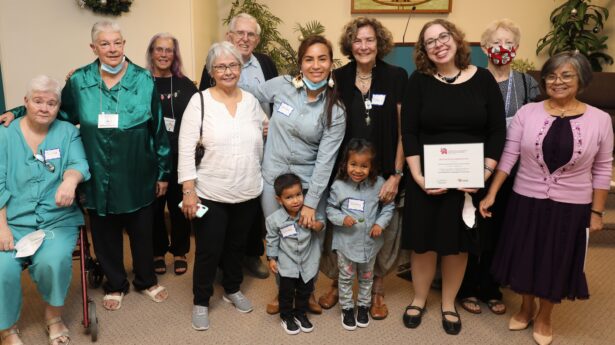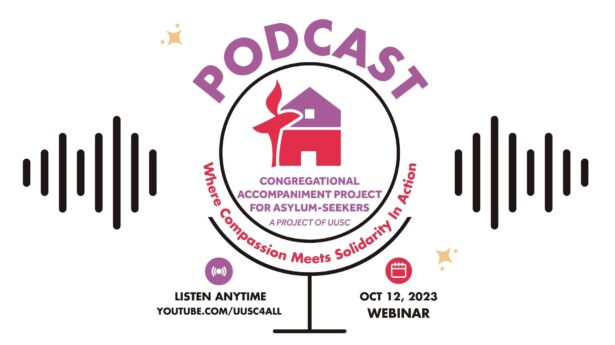The Unitarian Universalist Service Committee advances human rights through grassroots collaborations.
International Migrants Day: Let Asylum-Seekers Work

By Jessica Sapalio on December 17, 2023
December 18 is International Migrants Day, an opportunity to acknowledge and honor the work of migrants across the world. This year’s theme is “Act Today” and in accordance with that theme, UUSC is providing an update on a critical piece of legislation in the United States that will help asylum-seekers provide for themselves and their families as they enter the nation and seek legal status.
- Everyone has the right to seek and to enjoy in other countries asylum from persecution.
- This right may not be invoked in the case of prosecutions genuinely arising from non-political crimes or from acts contrary to the purposes and principles of the United Nations.
It is a vital right for those who are escaping persecution and oppression to seek asylum in another country for their safety and the safety of their loved ones. With the state of the world, we’re seeing high numbers of people entering the nation, looking for new lives, and trying to start over.
###
What if there was a way to address national labor shortages, provide ways for those seeking safety in the United States to support themselves and their families, conserve communities’ limited public resources, and bolster early childhood development? The Asylum Seekers Work Authorization Act would do all of these things.
Almost 30 years ago, Congress created a huge obstacle to the ability of those seeking asylum to thrive: asylum-seekers must wait at least 180 days from the time they file their asylum application before they can receive an employment authorization document or work permit. During this long wait, they do not have permission from the government to work.
It’s not uncommon for asylum-seekers to experience waits of more than nine months for their permits to be approved and must deal with complicated application and processing systems. Sarah*, a participant in UUSC’s Congregational Accompaniment Project for Asylum-Seekers, had in-demand nursing skills, but was initially denied a permit after waiting the 180 days due to an error by the government. The attorney she was connected to through the CAPAS program worked with her family to figure out the error, but it required significant amounts of advocacy. We have seen similar delays for many individuals and families.
While they wait, asylum-seekers must find ways to survive. Many accept jobs paying less than minimum wage and often experience wage theft and other forms of extortion because they don’t have legal recourse without a work permit. They may experience unstable housing, food insecurity, and additional trauma or depression. There are no pay stubs to use for proof of income for landlords, little money to send home to family members left behind, and constant worry about affording the basics. These challenges can have broad consequences for all family members. According to a literature review by the Institute of Childhood Success, the impact of delayed work permits on children in asylum-seeking families is significant. The resulting unreliable income and its effects can affect early brain development, early education, nutrition, and parent/child relationships.
At the same time, we are experiencing national shortages of workers. According to the U.S. Bureau of Labor Statistics, there are 9.6 million job openings and only 6.5 million people looking for work. Asylum-seekers in the United States are eager for this work and could fill this gap.
UUSC has joined a coalition of more than 50 organizations to form the Let Asylum Seekers Work campaign. We are calling upon Congress to pass the Asylum Seeker Work Authorization Act (H.R. 1325), which will reduce the wait time from 180 days to 30 days. Since we launched the campaign, more than 1,150 individuals and more than 100 businesses have sent a letter to members of Congress. Will you take two minutes to join them by sending a letter?
Thank you for helping us mark International Migrant’s Day by taking this important action. To learn about more ways to offer solidarity and support to those seeking asylum, read about UUSC’s Congregational Accompaniment Project for Asylum-Seekers.
*Name changed to protect the individual’s privacy.
Image Credit: UUSC

